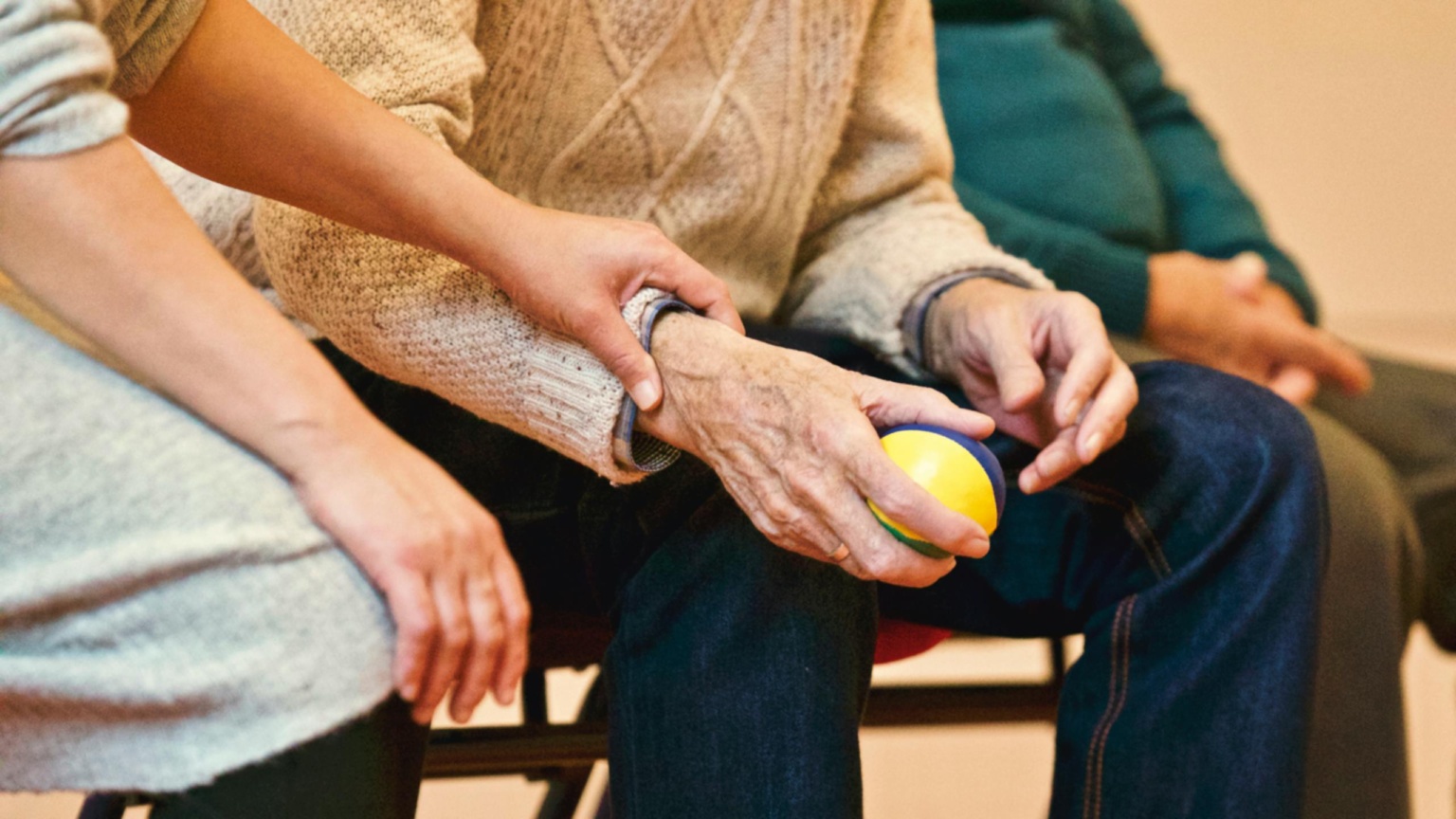How Specialised Support Enhances Quality of Life for the Elderly with Personalised Care and Funding Guidance
Specialised support for elderly individuals transforms daily living by combining personalised care with tailored funding guidance, ensuring seniors maintain autonomy, safety and emotional well-being from the comfort of home. In this article, we explore how in-home and residential care enhance independence, the role of My Aged Care and NDIS funding, the development of customised care plans, services for culturally and linguistically diverse seniors, strategies to reduce isolation, common challenges faced by older Australians, and practical steps for families and caregivers to access and benefit from specialised elderly support. By weaving together compassionate expertise and funding navigation, this guide lays a clear path toward a richer quality of life for seniors and their loved ones.
What Are the Key Benefits of Specialised Support for Elderly Independence and Well-being?
Specialised support for elderly independence and well-being integrates professional care services, adaptive living environments and funding advice to promote autonomy, safety and mental health. By tailoring assistance to individual needs—whether through home visits, residential programs or emotional support—seniors can maintain familiar routines and enjoy greater confidence in daily tasks.
Key benefits include:
- Enhanced autonomy through personalised assistance with mobility, personal care and household tasks.
- Improved safety via professional risk assessments, home modifications and regular monitoring.
- Better health outcomes thanks to coordinated medical oversight, medication management and wellness programs.
- Stronger emotional and social well-being through companionship, group activities and mental stimulation.
Benefits of Specialised Support for Elderly Independence
Specialised support services, including in-home care and residential programs, are designed to promote autonomy, safety, and mental health in elderly individuals. These services offer personalised assistance with daily tasks, risk assessments, and health monitoring, which can significantly improve the quality of life for seniors.
National Institute on Aging, “In-Home Care for Older Adults” (2023)
This research supports the article’s claims about the positive impact of specialised support on elderly independence and
.These advantages set the stage for deeper exploration of specific care models such as in-home and
that directly bolster independence and comfort.
How Does In-Home Care Promote Elderly Independence and Comfort?
In-home care enables seniors to maintain daily routines by delivering targeted assistance in their familiar surroundings, which directly supports autonomy and reduces stress. Caregivers can help with personal hygiene, meal preparation and light housekeeping, while also providing
that combats loneliness.
Benefits of in-home care:
- Personalised schedules that align with individual preferences and energy levels.
- One-on-one support for mobility, reducing fall risk through tailored exercises.
- Continuity of relationships with a consistent caregiver, fostering trust and emotional security.
Sustained in-home assistance lays the groundwork for exploring more structured residential care options when needs evolve.
In What Ways Does Residential Aged Care Improve Quality of Life for Seniors?
Residential aged care provides structured support, round-the-clock medical supervision and social activities that enhance seniors’ health outcomes and community engagement. Dedicated facilities offer tailored rooms, on-site allied health services and group programs that encourage physical activity and creative expression.
Core features include:
- 24/7 nursing and allied health teams to manage chronic conditions and acute episodes.
- Daily communal meals and social events to foster meaningful connections.
- On-site therapy services—such as physiotherapy and occupational therapy—to maintain functional independence.
How Does Personalised Care Address Emotional and Social Well-being?
Personalised care focuses on emotional reassurance and social connectivity by matching seniors with caregivers who understand their background, language and life story. This approach nurtures meaningful relationships and honours cultural or personal preferences.
Key elements of personalised emotional support:
- Empathetic engagement: caregivers trained in active listening and reminiscence therapy.
- Social programming: customised group activities based on interests, from art classes to gentle exercise.
- Family involvement: coordinated visits, shared decision-making and regular progress updates.
By anchoring care in personal history, seniors experience a sense of purpose and belonging that transcends physical support.
How Do Funding Options Like My Aged Care and NDIS Support Specialised Elderly Care?
Government funding through My Aged Care and the National Disability Insurance Scheme (NDIS) underpins access to specialised services, reducing financial barriers and ensuring seniors and people with disabilities receive the right level of support.
Funding Options for Elderly Care
Government funding through programs like My Aged Care and the National Disability Insurance Scheme (NDIS) plays a crucial role in reducing financial barriers and ensuring that seniors and people with disabilities receive the necessary support. These programs provide access to a range of services tailored to individual needs.
Australian Government Department of Health and Aged Care, “My Aged Care” (2024)
This citation provides information on the My Aged Care program, which is a key funding source for elderly care in Australia, as mentioned in the article.
What Is the My Aged Care Application Process and Eligibility Criteria?
The My Aged Care application process begins with registration, followed by an assessment to determine eligibility and funding allocation for home or residential care. This process ensures seniors receive packages that match their assessed needs.
A simplified step list:
- Register with My Aged Care via phone or online portal.
- Assessment by Aged Care Assessment Team (ACAT) to evaluate support requirements.
- Approval of Home Care Package level or residential care funding.
- Service selection from approved providers, tailoring support to personal goals.
This streamlined pathway enables older Australians to secure government-funded care services with clarity and confidence.
How Does NDIS Funding Work for Older Australians and Those with Disabilities?
NDIS funding provides a personalised plan for eligible participants under 65 at application, offering supports that enhance daily living, community participation and capacity building. Plans can include transport, allied health, and assisted living services.
| Entity | Attribute | Value |
|---|---|---|
| NDIS | Eligibility age | Under 65 at time of first plan approval |
| Plan Management | Support coordination | Assistance with budgeting and managing service bookings |
| Capacity Building | Life skills training | Programs to increase independence in daily activities |
| Community Participation | Social and recreational | Funding for outings, clubs and community group involvement |
Can NDIS Participants Over 65 Continue Receiving Support?
Yes. If someone is already enrolled in the NDIS before their 65th birthday, they can continue receiving NDIS supports even after turning 65.
However, once a person is 65 or older, they cannot start a new NDIS plan.
Instead, support options shift toward Australia’s aged care system (for example, through My Aged Care and related services). Some people may choose – or need – to transition certain services to aged care as their needs change, but their disability-supports under NDIS don’t automatically stop at 65.
How Are Personalised Care Plans Developed to Meet Individual Elderly Needs?
Personalised care plans combine assessments of physical health, emotional well-being and environmental factors to create a holistic roadmap for each senior. By engaging multidisciplinary teams, these plans align with personal goals and funding limits.
What Factors Are Considered in Tailoring Aged Care and Disability Support?
Care plans account for: FAQs
- Health status: chronic conditions, mobility levels and medication regimes.
- Personal preferences: cultural background, language, hobbies and dietary needs.
- Home environment: safety hazards, accessibility and proximity to community resources.
- Support network: family involvement, informal carers and social connections.
Incorporating these elements ensures that care is both feasible and deeply relevant to each person’s daily life. By considering the whole individual — not just their medical needs — aged care and disability services can provide support that promotes independence, respects personal values, and enhances overall quality of life.
How Do Personalised Plans Enhance Health Outcomes and Daily Living?
Personalised plans improve health outcomes by coordinating medical and allied health interventions, preventing hospital admissions and promoting independence. They also define clear daily routines and social engagement goals that foster wellbeing, confidence, and life satisfaction. By aligning care with individual preferences and priorities, personalised plans help people maintain a higher quality of life and remain active participants in their own care journey.
Core outcomes include:
- Reduced hospital visits through proactive care and monitoring.
- Improved functional capacity via targeted therapy exercises.
- Enhanced mood and cognitive stimulation through personalised activities.
A well-crafted plan transforms abstract goals into measurable daily actions, providing clear steps for carers and clients alike. This structure not only guides consistent, high-quality care but also empowers individuals to track progress, celebrate achievements, and adjust supports as their needs evolve.
What Specialised Services Address the Unique Needs of Culturally and Linguistically Diverse (CALD) Seniors?
CALD seniors benefit from services that respect cultural values, language preferences and community practices, ensuring care is both accessible and relevant.
How Is Culturally Appropriate Care Delivered to CALD Elderly Communities?
Culturally appropriate care is delivered through staff training in cultural competence, hiring bilingual caregivers and collaborating with community organisations. This approach reduces misunderstandings and builds trust.
Key practices include:
- Engagement of multicultural liaison officers.
- Adaptation of meal plans to cultural diets.
- Scheduling care visits in alignment with religious or cultural observances.
This foundation of respect paves the way for effective interpreting and language support.
What Language Support and Interpreting Services Are Available?
Language support services include on-demand telephone interpreters, in-person bilingual workers and translated care materials. These resources ensure clear communication and informed decision-making.
Available resources:
- Telephone interpreting in over 100 languages.
- Bilingual care workers for common community languages.
- Translated guides on care processes and funding options.
By bridging language gaps, seniors can actively participate in their care planning, understand their rights and options, and make confident choices about the supports that best suit their needs.
How Do CALD-Focused Care Plans Improve Quality of Life?
CALD-focused care plans integrate cultural preferences with clinical goals, fostering comfort and reducing anxiety. Seniors remain connected to their heritage through tailored social activities and dietary choices.
| Service | Attribute | Benefit |
|---|---|---|
| Multicultural Liaison | Cultural competency training | Builds trust and reduces care-related stress |
| Bilingual Home Care Workers | Language fluency | Ensures clear communication and engagement |
| Community Partnership | Local cultural events | Promotes social inclusion and familiar routines |
These culturally attuned services enhance seniors’ sense of identity, belonging, and dignity, while supporting their overall health and wellbeing.
How Does Specialised Support Reduce Social Isolation and Promote Community Participation?
Reducing isolation and fostering community engagement are central goals of specialised support, improving mental health and life satisfaction.
What Role Does Companionship Play in Enhancing Elderly Well-being?
Companionship provides emotional reassurance, shared conversation and social stimulation, which in turn lower anxiety and depression rates among seniors. social outings.
Primary companionship benefits:
- Regular visits that prevent loneliness and provide routine.
- Shared hobbies and outings to maintain cognitive engagement.
- Emotional validation through empathetic listening and mutual understanding.
Strong bonds with caregivers and volunteers create a supportive network for everyday life.
How Do Disability Support Services Foster Social Engagement?
Disability support services facilitate community access through transport assistance, group programs and supported outings, enabling participants to join clubs, classes and social events.
Essential support features:
- Coordinated transport for medical, recreational and social appointments.
- Group facilitation for interest-based activities, such as art or gardening.
- Peer support networks to encourage friendships and mutual encouragement.
By removing logistical barriers, these services empower individuals to live fully connected lives, strengthen community ties, and enjoy a greater sense of independence and belonging.
What Are the Common Challenges Faced by Older Australians and How Does Specialised Support Address Them?
Older Australians often confront loss of mobility, complex funding systems and social isolation—challenges that specialised support services are designed to overcome.
How Does Specialised Support Help Overcome Loss of Independence?
Specialised support addresses mobility and functional decline through home modifications, assistive equipment and tailored exercise programs that rebuild confidence and capacity.
Typical interventions:
- Installation of ramps, grab rails and non-slip flooring.
- Provision of mobility aids like walkers or electric wheelchairs.
- Physiotherapy sessions to strengthen muscles and improve balance.
These measures restore autonomy and reduce the risk of accidents at home.
How Is Navigating Complex Funding Systems Simplified for Seniors and Caregivers?
Dedicated funding navigators guide families through My Aged Care and NDIS applications, explaining eligibility, coordinating assessments and comparing package options to select the most suitable support.
Support steps:
- Initial consultation to review personal circumstances and goals.
- Assistance with forms, documentation and appointment scheduling.
- Ongoing plan reviews to adjust funding and services as needs change.
Clear guidance transforms a daunting system into an accessible path to care.
How Can Families and Caregivers Access and Benefit from Specialised Elderly Support Services?
Families and caregivers can unlock expert advice, funding guidance and service coordination to deliver comprehensive support that enhances seniors’ quality of life.
What Guidance Is Available for Families on Funding and Care Options?
Cura’s experts offer workshops, downloadable guides and one-on-one consultations to explain funding pathways, service types and rights under My Aged Care and NDIS.
Available family resources:
- Step-by-step funding comparison charts.
- Live webinars on care plan development.
- Templates for documenting care preferences and medical histories.
Empowered by clear information, families can advocate effectively for their loved ones.
How Do Caregivers Collaborate with Providers to Enhance Elderly Quality of Life?
Effective collaboration relies on regular communication, shared goal-setting and joint reviews between informal caregivers, aged care providers and healthcare professionals, creating a cohesive support network. This partnership ensures that seniors receive consistent, coordinated care that addresses both medical needs and personal preferences, ultimately improving comfort, independence and overall quality of life.
- Scheduled care meetings to update goals and address concerns.
- Shared digital records for medication, appointments and personal notes.
- Flexible feedback loops that adapt services to evolving needs.
By working in partnership, caregivers and providers ensure seniors receive consistent, person-centred support.
Sustained specialised support—anchored by clear funding guidance, personalised care plans and cultural sensitivity—enables older Australians to live with dignity, connection and purpose. As care needs evolve, this integrated approach remains adaptable, reinforcing independence and wellbeing at every stage of life. Families and caregivers who engage with expert navigators and tailored services can confidently guide their loved ones toward richer daily experiences. Embracing specialised support creates a future where ageing is accompanied by choice, community and comfort.





